

MOVING FORWARD: OUR NEXT GENERATION STRATEGIC PLAN 2022-2025
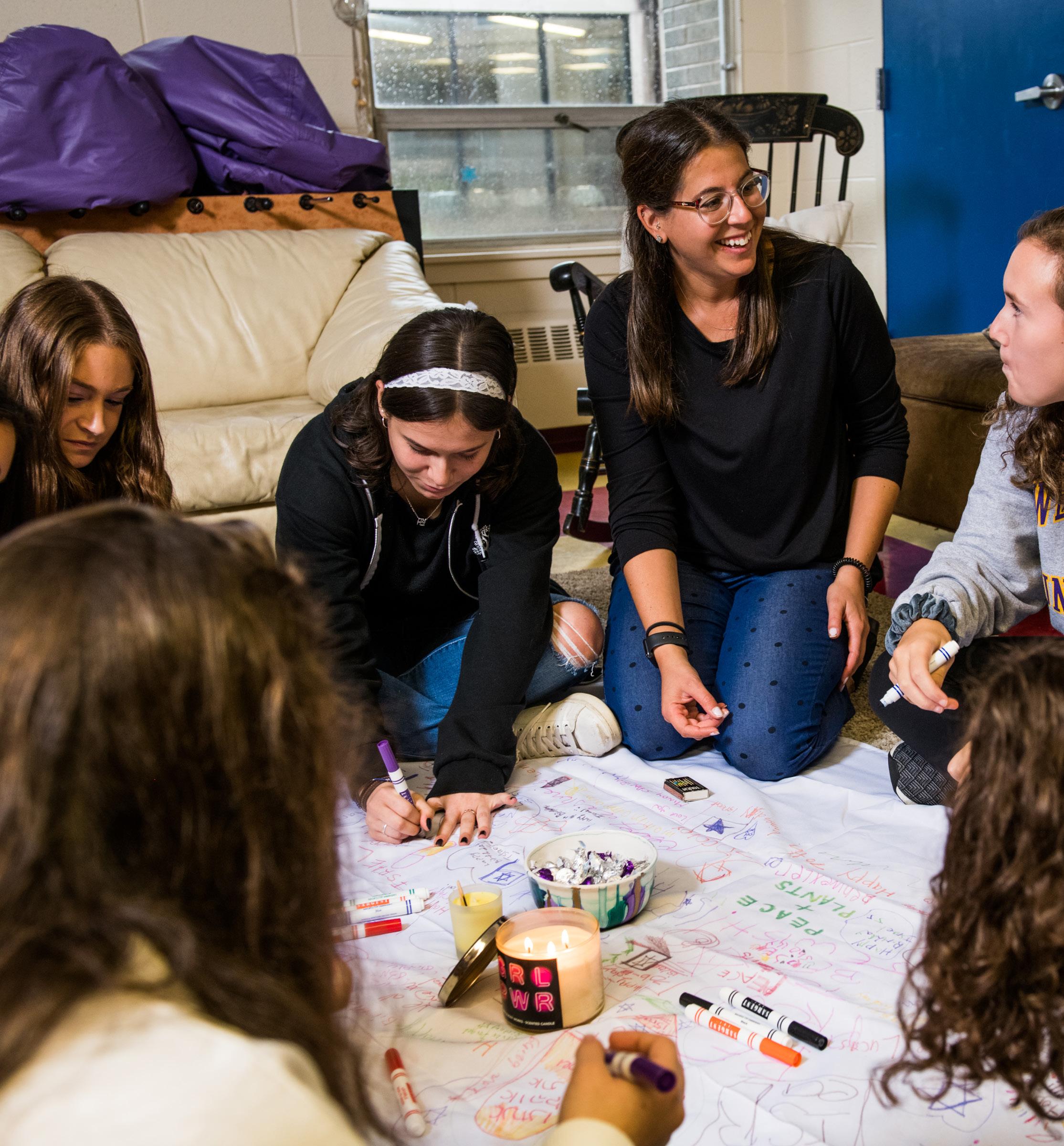



2
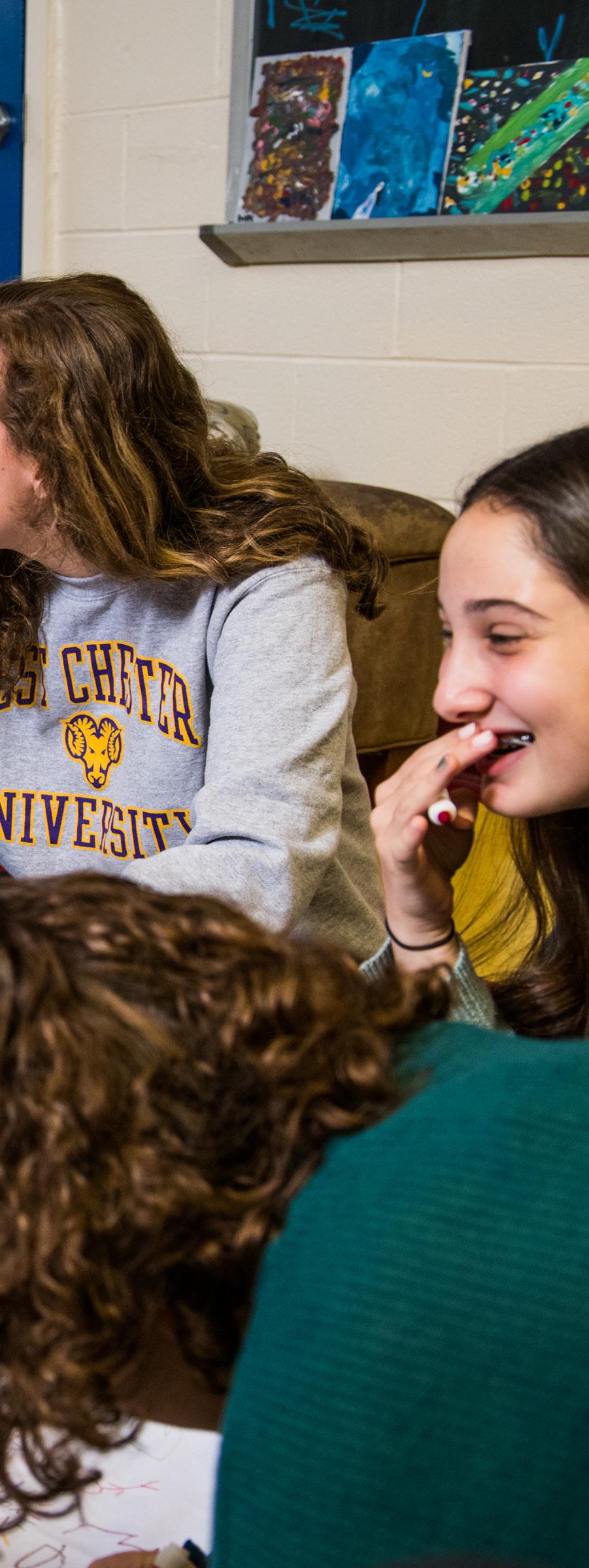


4 INTRODUCTION 4 Welcome 6 Executive Summary 8 Our Story 10 OUR FOUNDATION 10 Vision & Mission 12 Snapshots of Success 14 OUR APPROACH 16 Our Outcomes 19 Theory of Change 20 OUR 2022-2025 GOALS 22 Goal 1 26 Goal 2 28 Goal 3 30 FINANCIALS 32 ACKNOWLEDGEMENTS
Dear Friends,
Today’s youth report feeling disconnection and loneliness at unprecedented levels. According to a 2021 report from the Centers for Disease Control, 31% of teen boys, 66% of teen girls, and 78% of LGBTQ+ youth reported high levels of persistent sadness and hopelessness. Surveys of Jewish teens confirm self esteem issues, trouble coping with academic pressure, body image disorders, and anxiety. These trends existed before the pandemic, but exploded in its alienating wake.

And yet, today’s teens also have so much untapped potential. They bring novel ideas about leadership, power, and identity that we should be learning from every day. They remind adults to continue to see and seek to fix that which is broken in our world.
At the intersection of this moment of hopelessness and this moment of pure potential, Moving Traditions can help.
All of Moving Traditions’ work with youth address these very problems—our B-Mitzvah Family Education Program; teen groups including Rosh Hodesh, Shevet, and Tzelem; Kulam, our high school education program; the Kol Koleinu Teen Feminist Fellowship; our soon-to-launch Jewish racial justice initiative; and CultureShift for other youthserving organizations.
If you give teens a sense of CONFIDENCE in exactly who they are (shleimut), if you connect them to other people
in HEALTHY AND RESPECTFUL interpersonal relationships (hesed), then you develop TEENS WHO THRIVE, teens who have a SENSE OF PURPOSE and believe they can build toward a better and more EQUITABLE WORLD (tzedek).
These three legs—shleimut, hesed, and tzedek—can support teens in building resilience and wellbeing during this moment of crisis.

And this approach works. Over 90% of teens in our programs report “feeling supported,” over 90% of educators we train felt equipped to address youth’s social-emotional development, and over 90% of parents at our sessions said they felt more part of a Jewish community that supports them.
Jews are no strangers to that liminal moment between despondence and potential. When the Jews wandered in the desert for 40 years, they lost hope, going so far as to wish for death (Exodus 16:3). During that moment of need, God responded with manna, a bread-like food that rained from the sky. Torah commentators suggest that the manna tasted exactly like the favorite food of the person eating it. The despondent people were not just fed, they were sustained with what they needed physically, emotionally, and spiritually.
Moving Traditions is uniquely equipped to support teens, their parents, teachers, mentors, and clergy to engage with
the challenges of our era and to help teens find the inner resources and the external supports in the Jewish community that will help them thrive.

For that reason, in this strategic plan we lay out a plan to DOUBLE THE IMPACT of Moving Traditions to reach over 10,000 teens per year by the end of the 2025 programmatic year.
Seventeen years into our founding, the strong programs and curricula built by an outstanding team and their predecessors lay the groundwork for incredible economies of scale and return on investment: for a 25% increase in budget, we hope to GROW OUR PARTICIPANTS BY 100%.
We are here to nourish teens. From something that started with a vision and temerity by our founders Sally Gottesman and Deborah Meyer, something very big and powerful is lifting off.
We hope you will take a few minutes to read our plan and be inspired by this vision for supporting Jewish youth.

Warmly,

Shuli Karkowsky Rabbi Darcie Crystal

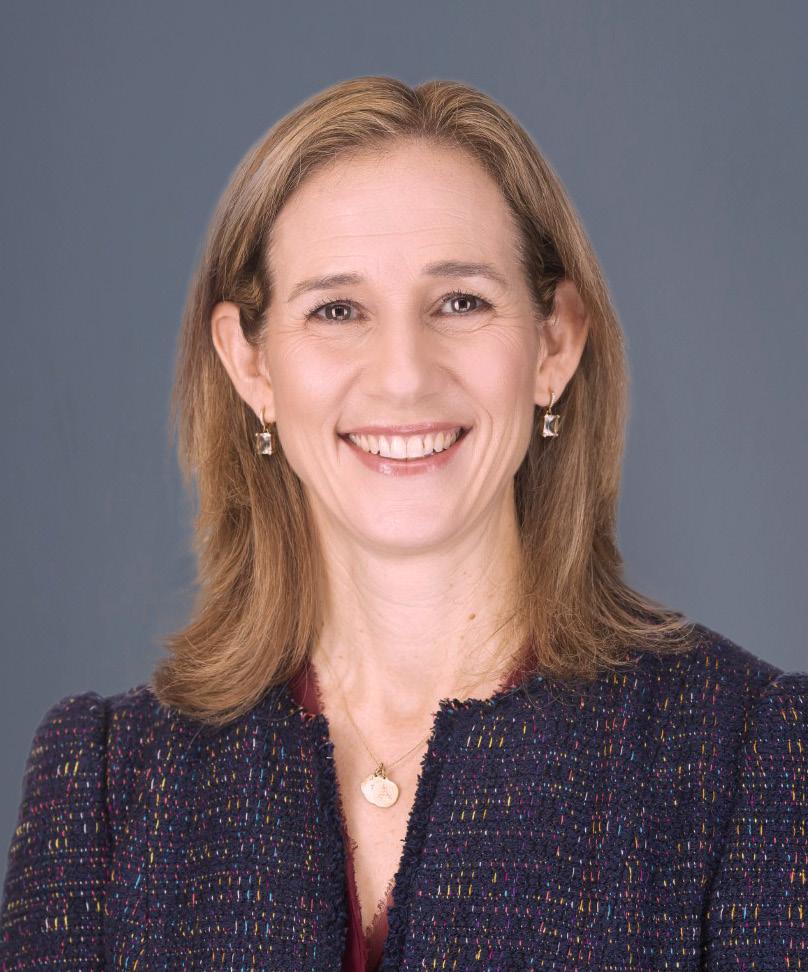
CEO of Moving Traditions Board Chair of Moving Traditions
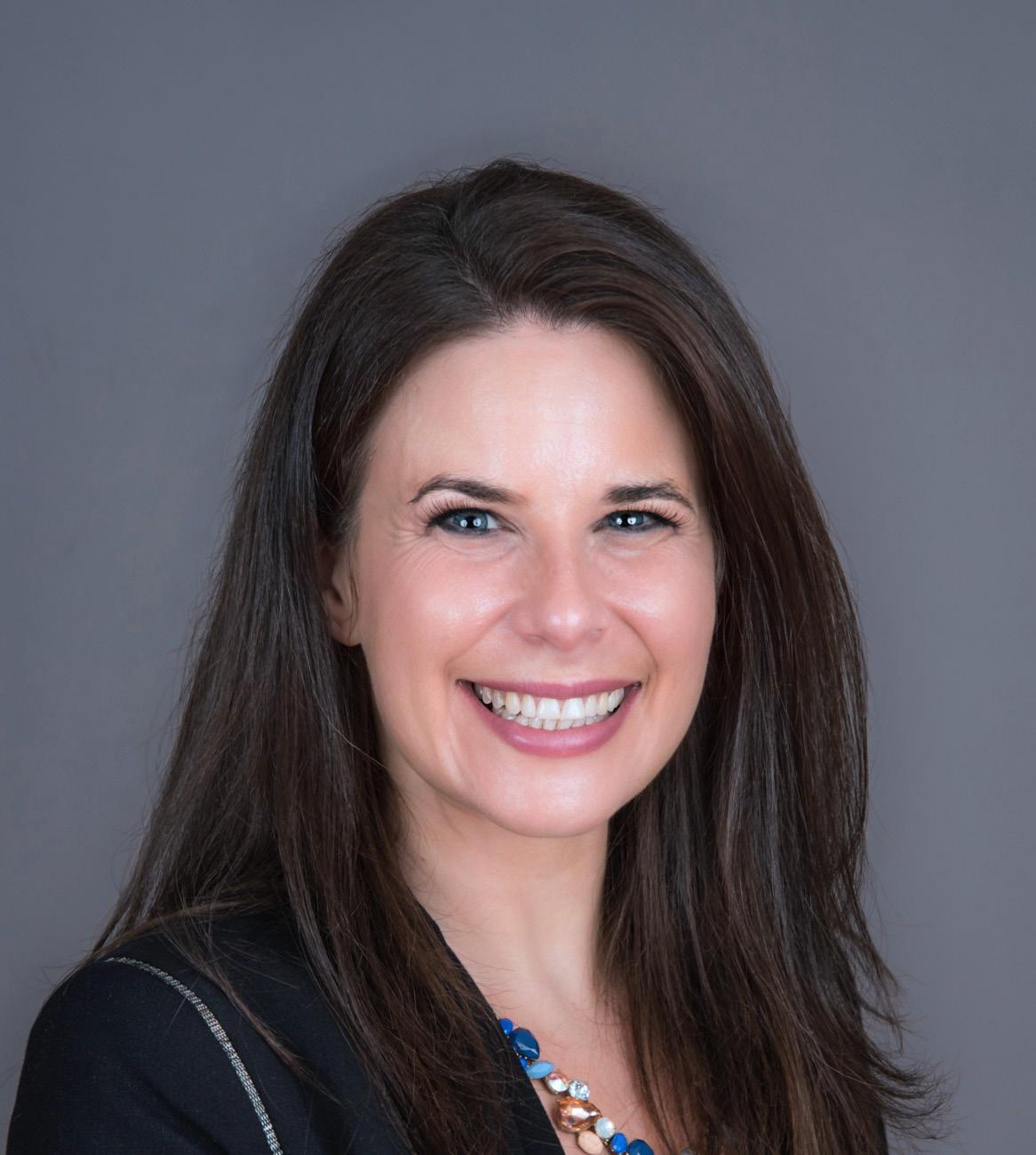
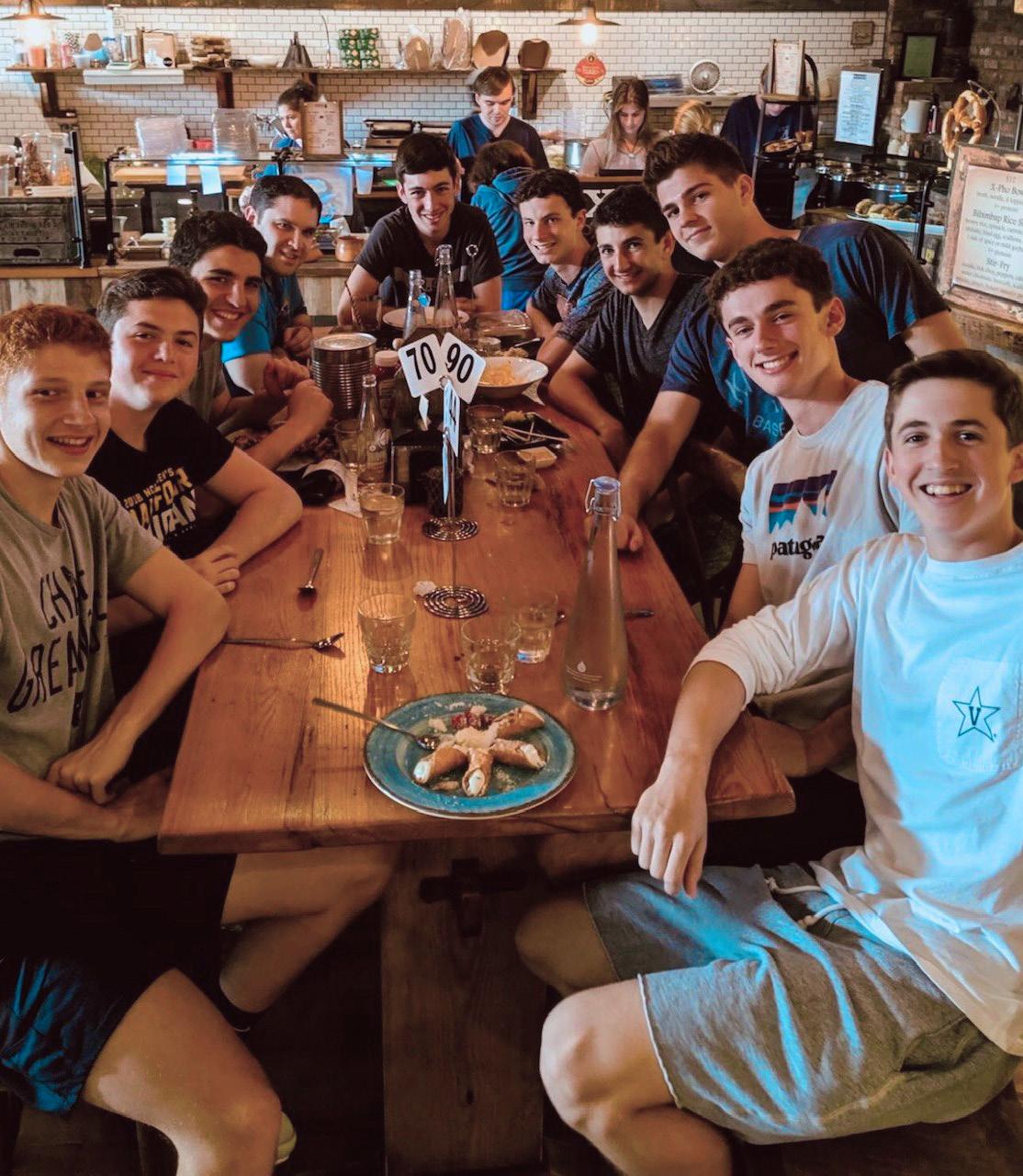


6
Preteens and teens today need our help. Even as they are constantly plugged in, they are often highly disconnected: from healthy ways to care for themselves, meaningful connections with their peers, feeling that they are supported by the Jewish community, and from hope for the future. Jewish teens are seeking a sense of belonging and purpose, places to speak honestly about the pressures they feel and concerns they have about the world, to find solace and joy, where they can both honor their connection to the Jewish past and use that Jewish foundation to move themselves and our communities forward.
Moving Traditions exists for times like these. We are uniquely equipped to support teens, their parents, teachers, mentors, and clergy to engage with the challenges of our era and to help teens find the inner resources and the external supports in the Jewish community that will help them thrive. Our programs, based in a commitment to Jewish principles and an evidencebased approach to teen wellbeing, support teens to develop an authentic and balanced sense of self; connect with others through ongoing and robust relationships; and develop a larger sense of purpose and a commitment to equity and justice. Through our programs, teens experience a Jewish community that prioritizes their questions and concerns and they find meaning in Jewish wisdom, ritual, ethics, and tradition.
In a world where teens are too often ranked, judged and disempowered, Moving Traditions fosters unique Jewish spaces, designed with a keen sensitivity to the changing yet ongoing importance of gender in teen development, mentor


Given the moment of need, with this strategic plan we lay DOUBLE THE IMPACT of Moving Traditions’ work to help more teens access the sense of personal wellbeing, connection, and purpose MADE
GOAL 1: REACH MORE JEWISH YOUTH
Embolden over 10,000 Jewish teens and preteens each year across North America to thrive by strengthening their Jewish identities, wellbeing, relationships, and commitment to justice.
GOAL 2: BUILD AN ECOSYSTEM OF SUPPORT
Strengthen the ecosystem of support for Jewish youth by elevating the critical connections between individual wellbeing, healthy relationships and communities, and systemic justice and equity.
GOAL 3: SECURE THE NECESSARY RESOURCES
Ensure we have the resources to achieve our programmatic goals by investing in resource generation, organizational development and infrastructure, board growth, and staff and board diversity and equity.
7
OUR STORY
Since its founding in January 2005, Moving Traditions has championed impact-focused youth-serving programs at the intersection of gender, wellbeing, and Judaism. Along the way, we’ve partnered with hundreds of synagogues, JCCs, camps, day schools, and emerging organizations and we have trained thousands of educators and clergy to meet the needs of Jewish preteens and teens.
Moving Traditions is founded by Board Chair SALLY GOTTESMAN and CEO DEBORAH MEYER. Its primary original work is supporting Jewish girls through expanding ROSH HODESH: IT’S A GIRL THING!, originally conceived and launched by Kolot: The Reconstructionist Rabbinical College’s Center for Jewish Women’s and Gender Studies.
By this time, Moving Traditions has trained more than SEVEN HUNDRED MENTORS AND EDUCATORS to lead Rosh Hodesh groups.
ENGAGING JEWISH TEENAGE BOYS: A CALL TO ACTION is released, including pilot curriculum for groups, now called Shevet, that support Jewish boys.


Moving Traditions partners with the National Museum of American Jewish History to launch the traveling exhibit, BAT MITZVAH COMES OF AGE.
The B-MITZVAH FAMILY EDUCATION PROGRAM is piloted, training clergy and Jewish educators to help 6th and 7th graders and their parents embrace the joys and challenges of becoming a teenager.
Moving Traditions releases a longterm impact study on Rosh Hodesh participants and unveils a new STRATEGIC PLAN.
Moving Traditions partners with Keshet to hold a convening on JEWISH TRANS TEEN INCLUSION, resulting in new training on gender beyond the binary for all teen group leaders and the piloting of an online national group that eventually becomes Tzelem.





Today, 17 years of research and careful program evaluation shows just how well Moving Traditions strengthens Jewish educators, emboldens preteens and teens, and engages families.
Moving Traditions partners with Foundation for Jewish Camp to research issues of gender, sex, and power at Jewish overnight camps and develop training for camp staff that becomes CULTURESHIFT.

A revised ROSH HODESH CURRICULUM is piloted and then launched, incorporating new perspectives on feminism and gender.



HOPE SUTTIN becomes the second board chair of Moving Traditions.
Moving Traditions partners with the National Federation of Temple Youth (NFTY) to expand the program that will become the MEYER-GOTTESMAN KOL KOLEINU TEEN FEMINIST FELLOWSHIP.
As the #metoo movement emerges, Moving Traditions deepens its healthy sexuality work, adding new teen and parent education sessions and offering advanced training to group leaders and camps led by staff and nationally reknowned sexuality experts. Our work with SHEVET is featured on NPR.

RABBI DARCIE CRYSTAL becomes the third board chair of Moving Traditions.
Moving Traditions PROGRAM
PARTNERSHIPS EXPAND BY 50%
during the first two years of the Covid-19 pandemic (from 114 in 2019-20 to 167 in 2021-22), due to our growing suite of programs with curriculum that can be implemented in person or online.

Moving Traditions pilots KULAM, a dynamic all-gender teen curriculum for Hebrew High School and other classroom settings, in response to multiple requests from partners.
Moving Traditions focuses deeply on issues of racial equity and commits to expand its programmatic focus to include TRAINING TEENS ON JEWISH IDENTITY AND RACIAL JUSTICE.
SHULI KARKOWSKY becomes the second CEO of Moving Traditions, succeeding DEBORAH MEYER. Moving Traditions publishes this new strategic plan with ambitious growth goals and hopes to AMPLIFY 17 YEARS OF IMPACT AND EXPERTISE throughout the fields of Jewish education and teen engagement.

VISION

Drawing on the belief that all human beings are CREATED IN THE DIVINE IMAGE (b’tzelem Elohim), we envision a world where Jews, Judaism, and Jewish community are a force for WELLBEING, EQUITY AND JUSTICE.

MISSION
Moving Traditions emboldens Jewish youth to thrive through the pursuit of PERSONAL WELLBEING (shleimut), CARING RELATIONSHIPS (hesed), and a Jewish and feminist vision of EQUITY AND JUSTICE (tzedek).
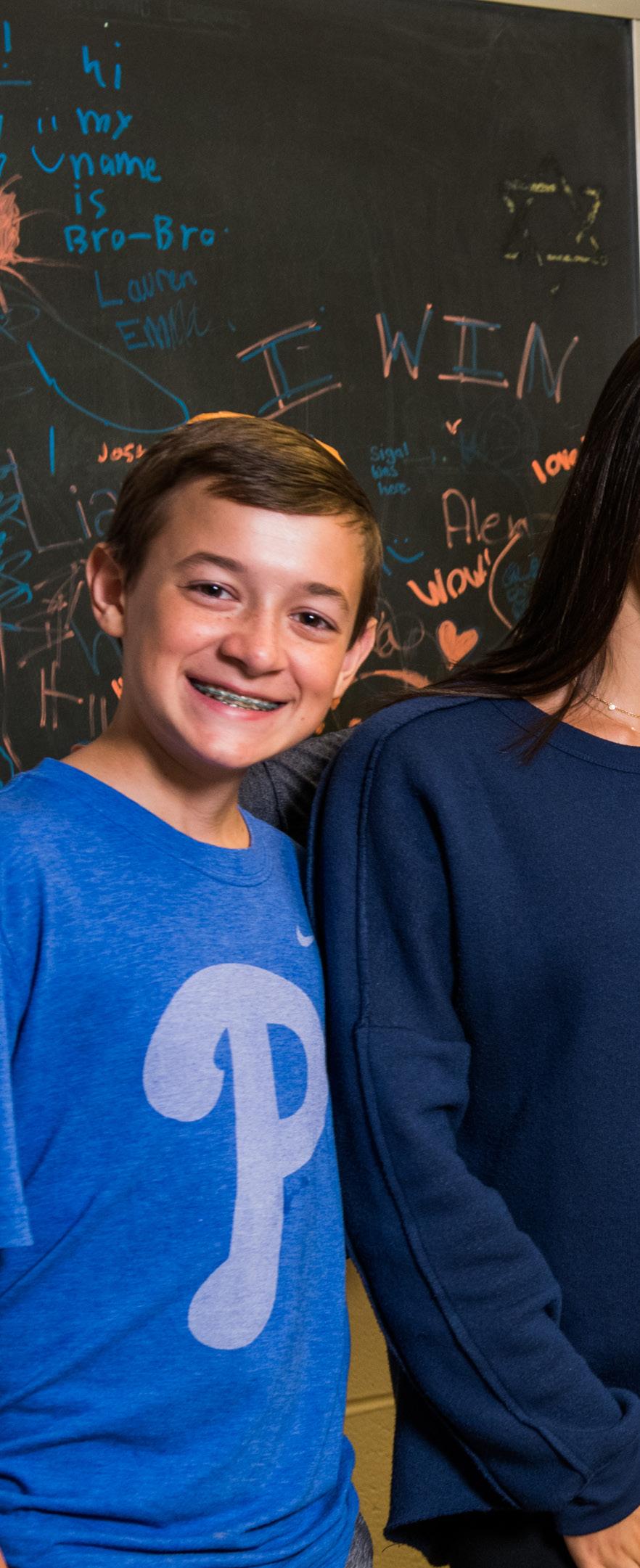
10
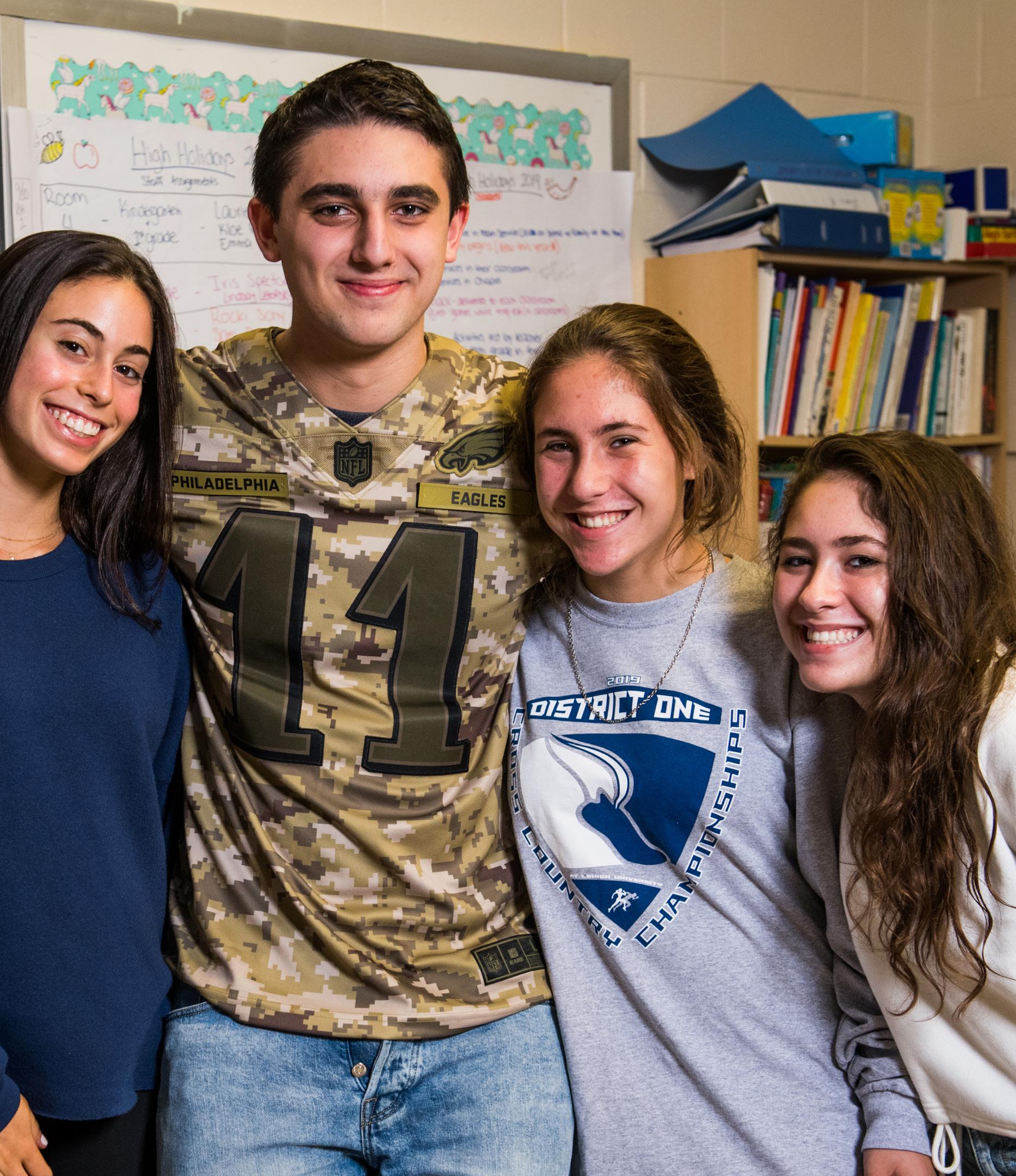




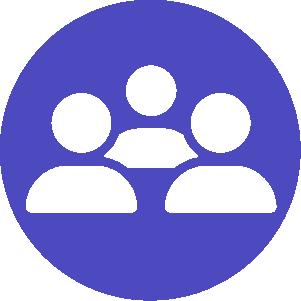


12 Since Moving Traditions was founded in 2005, until the start of this strategic plan in 2021... 28,000+ TEENS EMBOLDENED 2,500+ JEWISH EDUCATORS AND CLERGY TRAINED 500+ JEWISH INSTITUTIONS PARTNERED
of TEENS say:
“I felt supported (in my needs around mental, emotional, social and/or spiritual health) by my group leader.”
of TEENS say:
“My experience with Moving Traditions programs was good or great.”
of PARENTS say:
“B-Mitzvah Family Education makes me feel like I am part of a Jewish community that supports me.”
of KOL KOLEINU FELLOWS say:
“The program helped me grow as a feminist and an activist.”
of EDUCATORS say:
“Moving Traditions’ program helped me connect Jewish wisdom to youth’s social-emotional development.”

of PRETEENS say:
“The Jewish content in the B-Mitzvah Program is relevant to my life.”
“I learned that stress really does make a huge impact in our life, especially recently. However, the little things we do can change the way we can feel and think, and that can make us happier and more positive.” — Kulam Participant
98%
91%
87%
90%
92%
82%
Our work is rooted in JEWISH WISDOM, the research-based findings of POSITIVE PSYCHOLOGY, and a commitment to FEMINISM.
OUR APPROACH IS JEWISH.
We draw on the richness of Jewish tradition, history, ritual, culture and contemporary life to provide teens and those who guide them with a deep wellspring of values, ethics, role models, texts, and practices with which they can construct lives of meaning, purpose and joy. The ancient rabbis expounded on the creation of humans b’tzelem Elohim, in the Divine image, to teach that each human being is different, singular, unique, and of infinite value. With this as a foundation, we draw from a wide array of Jewish sources and practices to provide youth with a grounding in Jewish wisdom that speaks to their lives, and to give them the experience of being part of a community that values the fullness and diversity of who they are.
OUR APPROACH SUPPORTS

TEEN WELLBEING.
Our work is informed by the research-based insights of positive psychology, social emotional learning theory, and comprehensive sexuality education. We support teens in discovering sources of happiness and positive emotions, in developing healthy authentic relationships, and in finding
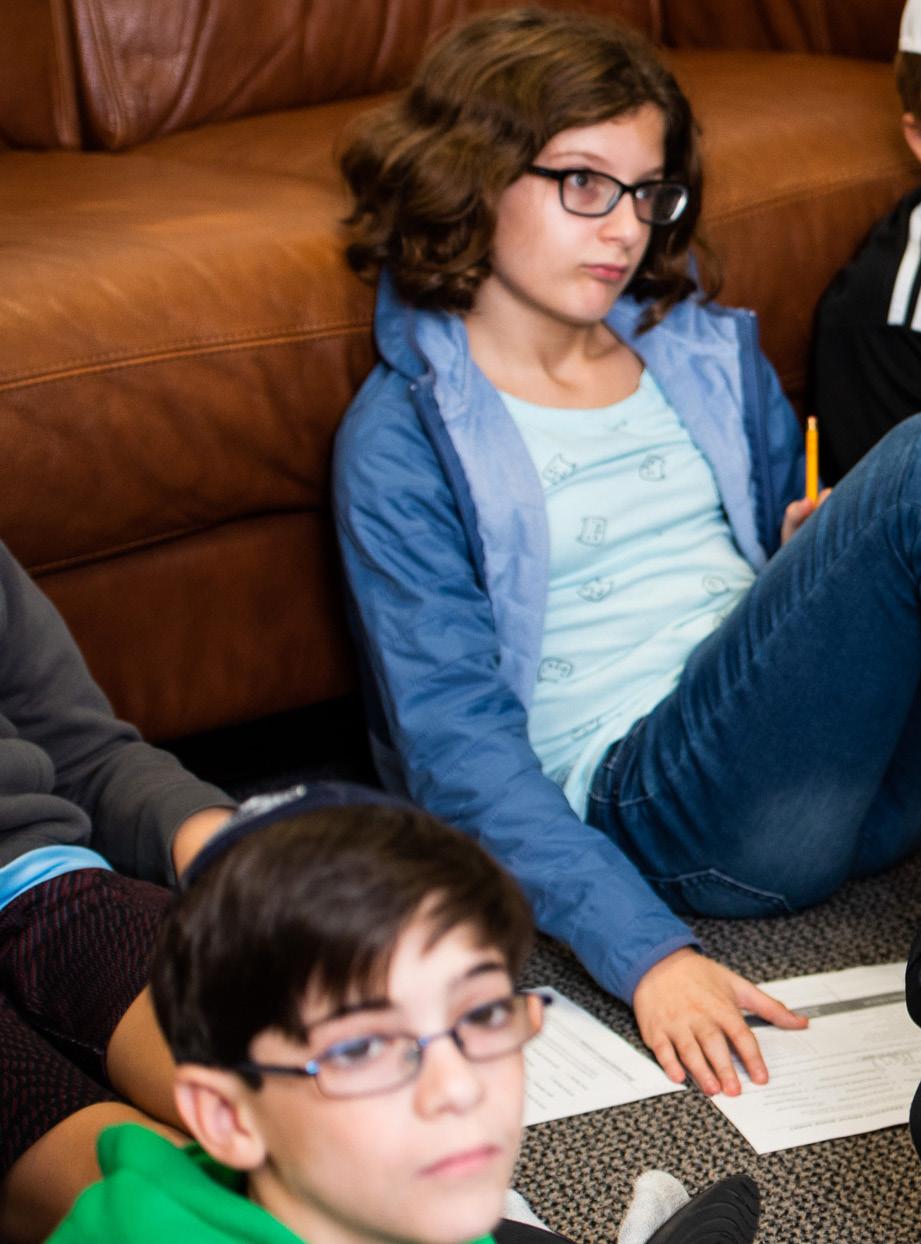
14
OUR APPROACH IS FEMINIST AND FULLY INCLUSIVE.

We build on the insights of gender and feminist theory to encourage Jewish teens of all gender and sexual identities, racial and ethnic backgrounds, family traditions, and abilities to recognize, develop and honor their full selves. We honor the complexity of identity and belonging and encourage teens to explore various aspects of who they are, to challenge fixed notions about who they should be, and to use their power for good.
We encourage teens to reflect on the powerful and shifting role of gender in their lives – in their experiences of their bodies, their self-esteem and agency, their friendships and
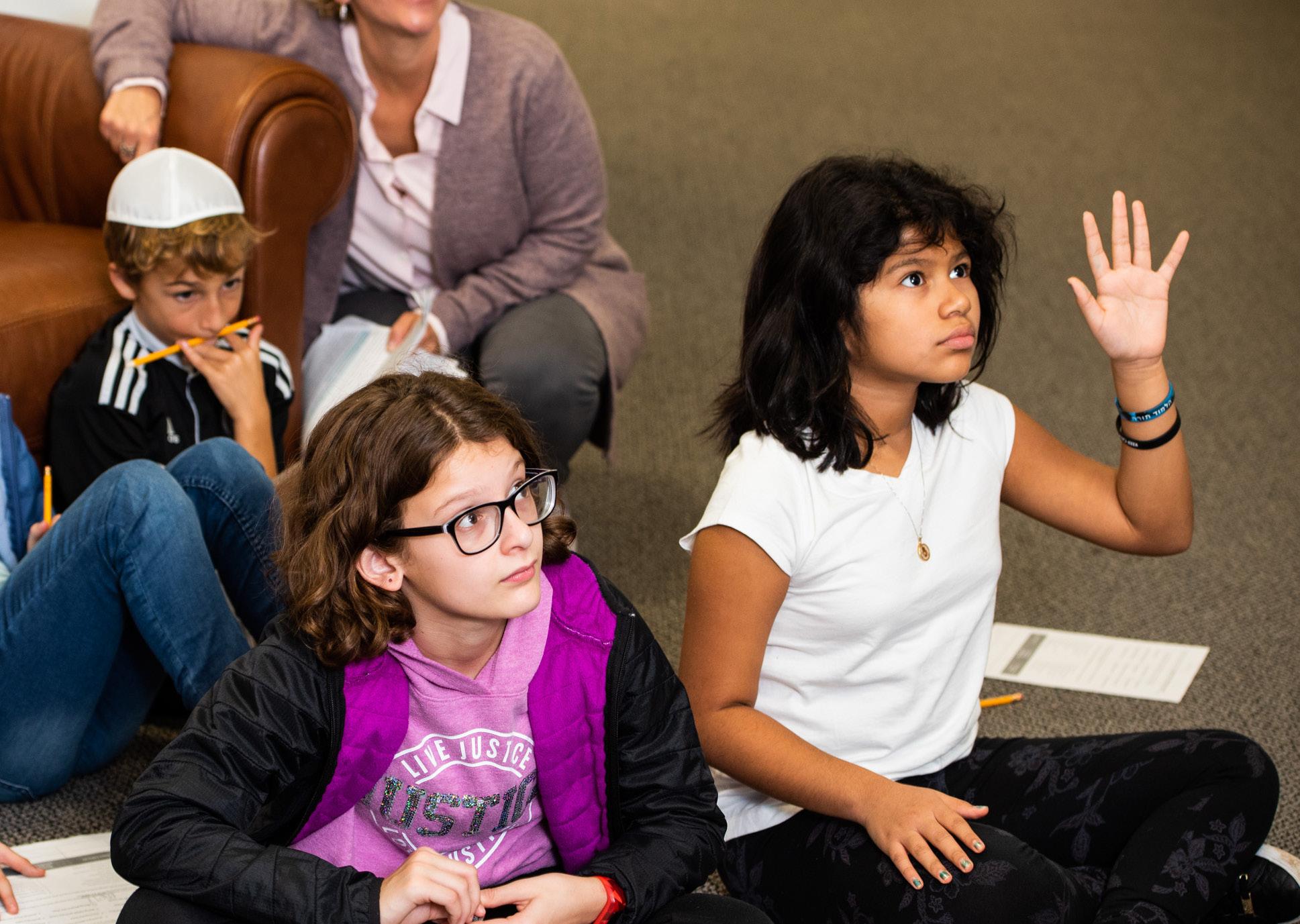


Our philosophy for HELPING JEWISH YOUTH THRIVE rests on three interconnected outcomes:
WELLBEING SHLEIMUT תומילש
When teens embrace their full, multi-layered and authentic selves, they thrive. Shleimut means wholeness. It shares a root with the word “shalom,” which implies coming to a place of being at peace with one’s whole self. This is not an easy feat in a world filled with 24-7 advertisements, social media messages, and pressures urging teens to change their bodies, buy more stuff, filter their photos, and achieve perfection in school and extra-curricular activities.


Jewish teens’ access to personal wholeness and selfacceptance can be eroded by societal messages and practices that perpetuate antisemitic, misogynist, and racist tropes and that do not value all gender identities and sexual orientations. Our programs honor the “whole self” of each preteen and teen, guiding them to navigate through unhealthy social pressures and providing them with Jewish wisdom and practice to foster their spiritual and emotional development. We support identity development, self-awareness, self-acceptance, healthy risktaking, balance, and resilience.
CARING CONNECTIONS
HESED • דסח
We know that building healthy relationships and communities is core to a healthy adolescence and to positive life experience. We support Jewish youth in their friendships with peers, familial and intimate relationships, and in their Jewish and secular communities. Our programs and materials help teens develop and practice essential interpersonal skills, including empathic listening, assertive communication, boundary setting and respect, and conflict resolution.
Hesed also applies to the most challenging aspects of teen relationships—hook-ups and romantic encounters. We do not shy away from the crucial task of helping youth to shift the way they value others and thus proactively support teens to form healthy and respectful connections and to recognize and talk about the continuum of abusive behavior. Our goal is to give each young person the experience of a being part of a supportive community of Jewish peers, helping them to develop and the tools and values they need to build meaningful relationships and communities of their choosing.
JUSTICE TZEDEK קדצ
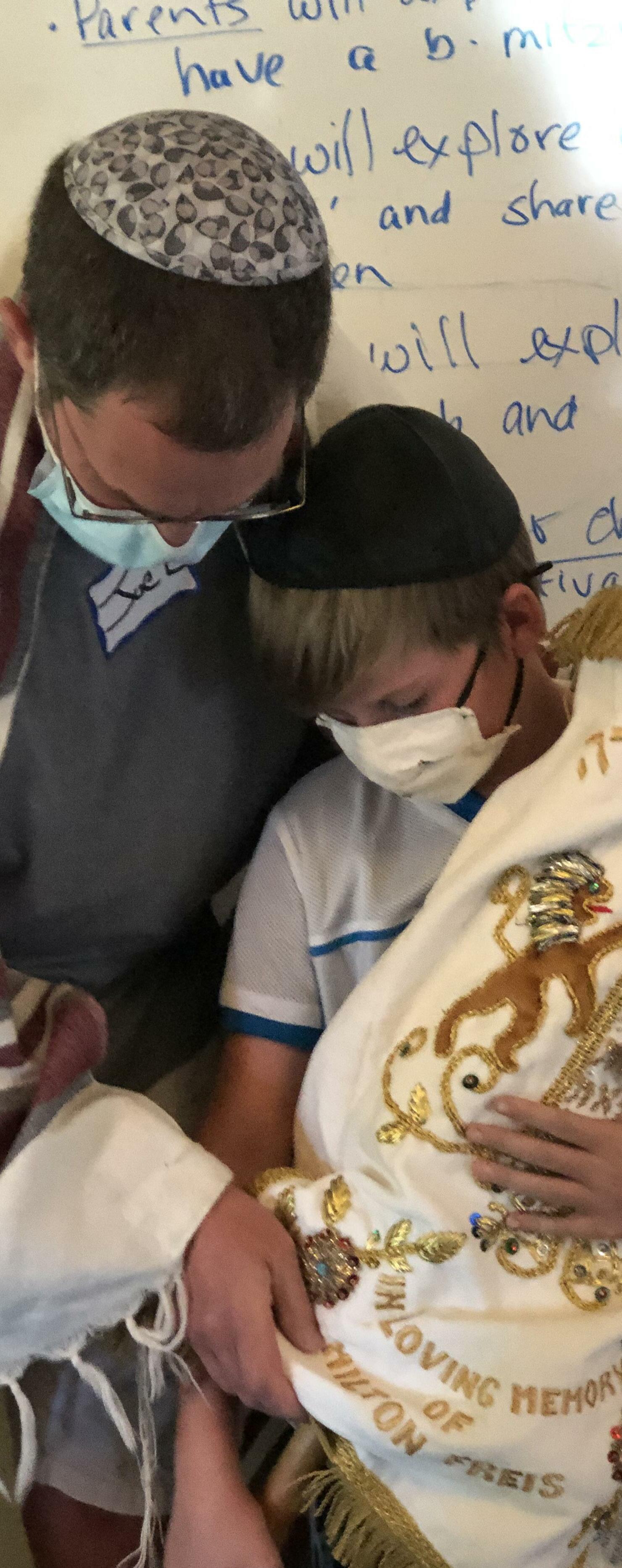
As a Jewish organization, our commitment to justice is deeply rooted in our understanding of the injuction, repeated multiple times in the Torah, to care for the marginalized and oppressed among us. As a feminist organization, we recognize that this responsibility entails working to transform the systems that continue to keep power, knowlege and access to resources in the hands of the few. Today’s teens know all too well that there are powerful forces that seek to roll back the advances that have been made for women and LGBTQ+ folks. Those same forces often perpetuate antisemitism and racism.



Our programs support our teens in pushing back on these forces in two ways: First, we help them to understand how Jewish feminists have cultivated the seeds of feminism within our tradition and how our prophets envisioned a just and equitable society for all people. Second, we encourage teens to discuss the most challenging aspects of tzedek - power, privilege, race, access, and discrimination, and to ask what our role, as Jewish people, should be in addressing ongoing inequities. As a result, our teens develop a proudly Jewish and feminist vision for justice, and begin to explore the roles that they can play in advancing social change.

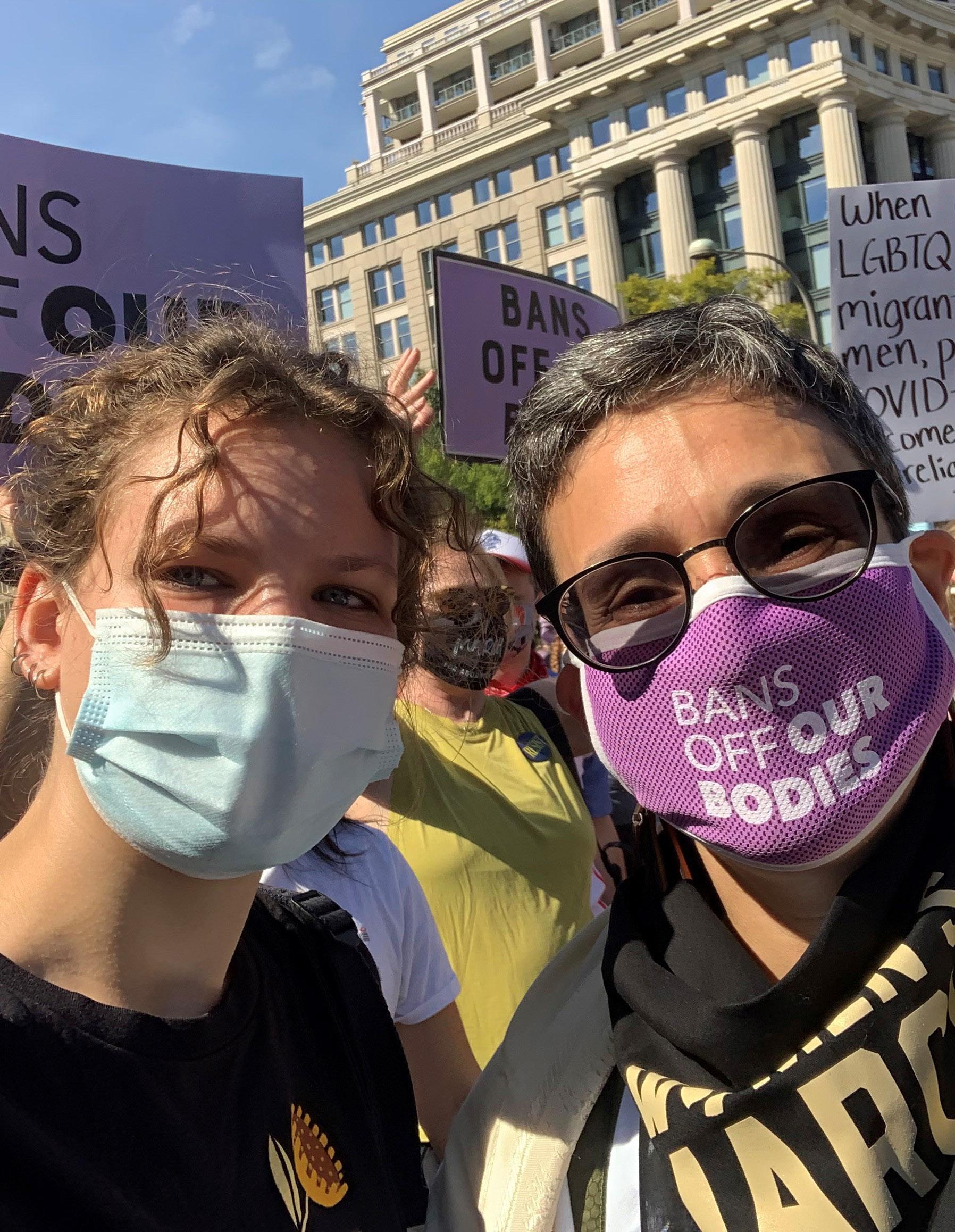


18

Traditions Move: Families, communities, organizations, cultures, and religious practices support, embrace, and nurture Jewish youth. Judaism is authentically vibrant, meaningful, and relevant for all Jewish youth. MISSION Moving Traditions emboldens Jewish youth to thrive through the pursuit of personal wellbeing (shleimut), caring relationships (hesed), and a Jewish and feminist vision of equity and justice (tzedek). ROOTED IN Jewish values, wisdom, and tradition • Social-emotional learning and positive psychology • A feminist perspective that honors the full humanity and interlocking identities of all people VISION Drawing on the belief that all humans are created in the Divine image (b’tzelem Elohim), we envision a world where Jews, Judaism, and Jewish communities are a force for wellbeing, equity, and justice. YOUTH Create and facilitate experiential learning for Jewish youth of all genders WHAT WE DO ADULTS Support and train adults who guide healthy youth development and positive relationships SYSTEMS Influence organizations that engage Jewish youth, resulting in changes to culture, programs, and policies OUTCOMES SHLEIMUT Jewish youth pursue knowledge and personal wholeness TZEDEK Jewish youth cultivate a commitment to inclusion, equity, and justice rooted in Judaism HESED Jewish youth develop supportive and healthy relationships and connect to their communities
THREE-YEAR STRATEGIC FOCUS
We will prioritize three key goals over the next three years to fulfill our mission and advance our vision:
GOAL
EMBOLDEN OVER 10,000 JEWISH TEENS AND PRETEENS EACH YEAR across North America to thrive by strengthening their Jewish identities, wellbeing, relationships, and commitment to justice.
GOAL
STRENGTHEN THE ECOSYSTEM OF SUPPORT for Jewish youth by elevating the critical connections between individual wellbeing, healthy relationships and communities, and systemic justice and equity.


GOAL
ENSURE WE HAVE THE RESOURCES TO ACHIEVE OUR PROGRAMMATIC GOALS by investing in resource generation, organizational development and infrastructure, board growth, and staff and board diversity and equity.
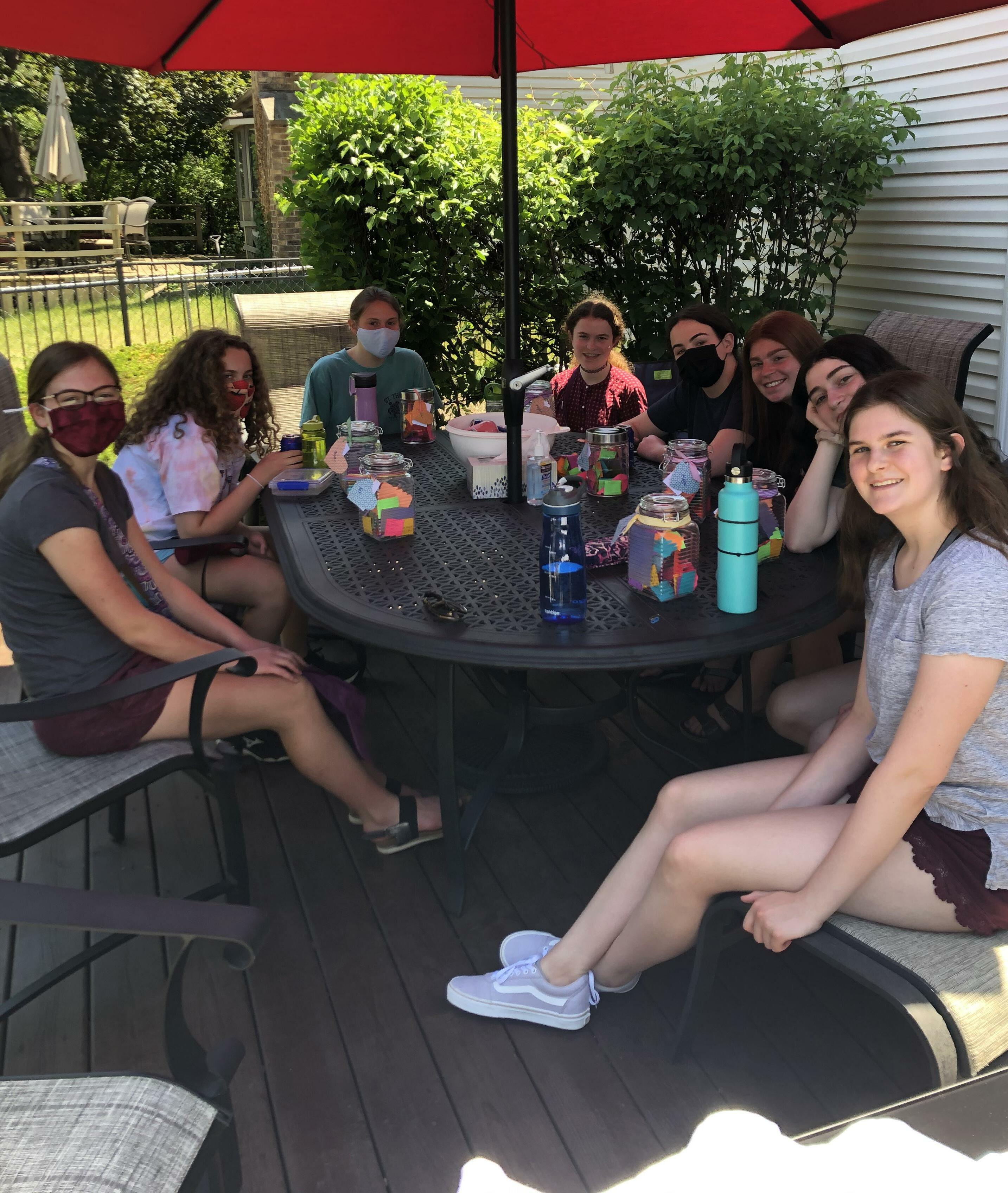


21
GOAL 1: REACH MORE TEENS


EMBOLDEN OVER 10,000 JEWISH TEENS AND PRETEENS EACH YEAR ACROSS NORTH AMERICA
TO THRIVE BY STRENGTHENING THEIR JEWISH IDENTITIES, WELLBEING, RELATIONSHIPS, AND COMMITMENT TO JUSTICE.
With a dual focus on both breadth and depth, we will double our impact on Jewish youth across North America while continuing to enrich our program content.
By the 2025 programmatic year, we will reach over 10,000 Jewish teens and preteens each year through greatly expanded partnerships with traditional and non-traditional Jewish communal institutions. We will implement and experiment with new staffing models that allow for rapid expansion and effective stewardship at a much lower cost per partner. As a result, more teens across North America will benefit from powerful Jewish learning experiences through our B-Mitzvah
Family Education, Teen Education Programs (including Kulam, Rosh Hodesh, Shevet, and Tzelem), and our training and responsive curricular materials.
These programs will provide sophisticated and relevant Jewish educational content that supports psychological wellbeing and grounds teens in their Jewish identity and understanding and pursuit of justice. We will also expand our leadership programs to build a larger cadre of teen leaders trained in Jewishly rooted activism, countering antisemitism and leading feminist and anti-racist change within the Jewish community and beyond.
While we double our impact by reaching twice as many youth, we are also committed to maintaining the transformative nature of our programs as measured through comprehensive program evaluations, which will continue to indicate that teens feel a greater sense of confidence, connection, and purpose as a result of participating in our programs.
HESED
TZEDEK

5,600 6,600 7,530 8,650 10,000 2021-22 2022-23 2023-24 2024-25 2025-26 B-Mitzvah Teen Education Fellowships PROGRAM GROWTH SCENARIOS where they could be themselves and be ACCEPTED FOR WHO THEY ARE.
77% of teen participants felt inspired to speak up or TAKE ACTION FOR POSITIVE CHANGE.
87% of teen participants developed a CONNECTION TO A SUPPORTIVE COMMUNITY. “It’s a place where I can be supported and help others, make new friends or strengthen the bond with friends I already have. I can learn more about Judaism from the perspective of being a woman, and it is something I look forward to every month.” — Rosh Hodesh Participant
GOAL 1 METHODS:
B-MITZVAH FAMILY EDUCATION PROGRAM
Our B-Mitzvah Family Education Program supports 5th-7th graders and their parents to explore what it means to come of age as a teen and as a Jew, and to discuss the questions and pressures that come with becoming/parenting a teen.
OBJECTIVES
Launch new partnerships in existing and new regions and train double the number of clergy/educators to run B-Mitzvah by the 2025 programmatic year through the CAROL LOWENSTEIN MOVING TRADITIONS B-MITZVAH TRAINING INSTITUTE while maintaining quality of program.
Modify curricula to ensure that our materials reflect and speak to the experiences and diversity of Jewish families and of partners’ needs, including non-synagogue partnerships and Shabbat school programs.
Augment Jewish content of all sessions, continuing to meet the needs of partners and families.
TEEN GROUPS

KEY METRICS OF SUCCESS
Though annual growth of 12-16%, we will expand the number of preteens participating in our B-Mitzvah Family education program to 6,000 teens and preteens per year. We will double the number of B-Mitzvah parents engaged with Moving Traditions by the 2025 programmatic year.
At least 80% of preteens will indicate that participation in B-Mitzvah sessions helps them feel part of a Jewish community that supports who they are.
At least 80% of parents will experience feeling supported as parents by the Jewish community through participation in the B-Mitzvah Program.
Transformative communities—including ROSH HODESH for girls*, SHEVET for boys*, and TZELEM for LGBTQ+ teens—where youth explore who they are through Jewish and gender lenses, together with a trained mentor using a dynamic curriculum.
Our Teen Groups create circles of support that embolden youth to thrive. Group discussions and activities are infused with Jewish values and wisdom made relevant today, guided by social-emotional learning and positive psychology – proven methods of learning that foster wellbeing.
*All of our teen groups are safe and inclusive spaces for youth to join as they self-identify. Nonbinary teens are welcome in whatever space they feel most comfortable.
OBJECTIVES
We will adapt Teen Group curricular materials for use in multiple settings with middle school and high school students, making Teen Groups available for use with a wider age range of youth.
We will specifically adapt the curriculum for summer camps and day schools..

We will continue to reflect and meet the changing needs of teens, adapting all Teen Group curricula to be more inclusive of expansive gender identities and Jewish racial and ethnic diversity.
We will continue to grow our Tzelem program in partnership with Keshet.
In 2023, we will create an advisory board of teens of a range of identities and ages to ensure that diverse teen interests and perspectives are informing our materials.
KEY METRICS OF SUCCESS
Experiment with expanding and adapting Teen Group partnerships with day schools, summer camps and synagogue partners to reach 1,300–1,500 teens per year by the 2025 programmatic year.

Increase the number of Tzelem groups by 40-50%.
At least 90% of teen group participants will feel supported in their needs around mental, emotional, social and/spiritual health by their group leader.
At least 90% will report that their teen group was a place where they could be themselves and feel accepted for who they are.
24
KULAM: IN IT TOGETHER
Kulam is a Hebrew High School Curriculum promoting teen wellbeing, healthy relationships, caring Jewish connections, and the inspiration to make a difference in our world. Kulam (meaning “Everyone,”) is a curriculum designed for Jewish educators to use in Hebrew High School settings that reflects the core components of Moving Traditions’ pedagogy in a flexible format for use with teens of all genders.
OBJECTIVES
Exponentially expand the number of Hebrew High Schools using the Kulam curriculum and the number of educators trained to teach it.
Continue to create additional sessions to enable multi-year use in Hebrew High schools and meet the shifting needs of educators, teens, and their parents.
Support the development of a robust community of practice among educators working with Kulam and continually learn from and adapt the curriculum based on their feedback.
KEY METRICS OF SUCCESS
Expand the number of teens engaged through Kulam by 30-35% per year, increasing impact from 680 teens in 2021-2022 to over 2,500 teens annually by the 2025 programmatic year.
Increase the number of educators trained to deliver Kulam from 42 in 2021-2022 to at least 100 in the 2025 programmatic year.
Expand the number of available Kulam sessions from 15 to at least 25.
Annual survey results that demonstrate that at least 80% of teens agree that Kulam helps them feel a sense of connection to the Jewish community, develop healty relationships skills and gain insight into current social issues.
THE MEYER-GOTTESMAN KOL KOLEINU TEEN FEMINIST FELLOWSHIP
The Meyer-Gottesman Kol Koleinu Teen Feminist Fellowship is a year-long fellowship for 10th-12th grade teens of all genders to gain confidence, build intergenerational Jewish feminist community, develop agency as Jewish feminist changemakers and ultimately change perception in the greater Jewish community about young people’s power and capacity as changemakers.
OBJECTIVES
Deepen fellows’ understanding of methods of social change, sense of accomplishment, opportunity for reflection and growth, and depth of connection with other fellows and with adult mentors.
Build more connections between Kol Koleinu fellows and ongoing social change work in their local communities
Create an alumni network for the Meyer-Gottesman Kol Koleinu Teen Feminist fellowship.


KEY METRICS OF SUCCESS
Add four regional retreats at the beginning of the program year beginning in 2022, increasing the number of in-person hours that fellows spend together per year by 33%.
Adapt Kol Koleinu project design in 2022-2023 to better match developmental needs of fellows and provide fellows with more opportunities to engage in a range of activist projects throughout each year.
Maintain at least 95% agreement among fellows that the fellowship helps teens grow as feminists and activists and helps teens understand how Judaism and Jewish community can support them in these identities.
By 2025, forge relationships between regional cohorts and at least one ongoing social change organization.
RACIAL JUSTICE AND JEWISH IDENTITY TRAINING ACADEMY

The new Racial Justice and Jewish Identity Training Academy is a pilot training program that will support teen leaders in developing the knowledge, skills and behaviors necessary for engaging as Jews in activities, groups, and movements that advance racial equity and justice. The initiative aims to make more room in progressive spaces for Jewish and pro-Israel teens, and more responsiveness in Jewish spaces to anti-racist practices and perspectives.
OBJECTIVES
In Spring 2023, launch first cohort of Racial Justice and Jewish Identity Training Academy.
KEY METRICS OF SUCCESS
Expand participation in Racial Justice and Identity Training Academy to reach 100+ teens per year by the 2025 programmatic year.
GOAL 2: BUILD AN ECOSYSTEM OF SUPPORT
STRENGTHEN THE ECOSYSTEM OF SUPPORT FOR JEWISH YOUTH BY ELEVATING THE CRITICAL CONNECTIONS BETWEEN INDIVIDUAL WELLBEING, HEALTHY RELATIONSHIPS AND COMMUNITIES, AND SYSTEMIC JUSTICE AND EQUITY.


We will offer more educational opportunities for parents and family members and more professional development and training for educators and staff who work with youth. We will amplify the voices of teen leaders in our programs as well as those of our own staff and partners, to share insights and thought leadership about the critical connections between individual wellbeing, healthy relationships and communities, and systemic justice and equity – ideas that we hope will contribute significantly to the health of Jewish youth, families, communities and of our larger society.
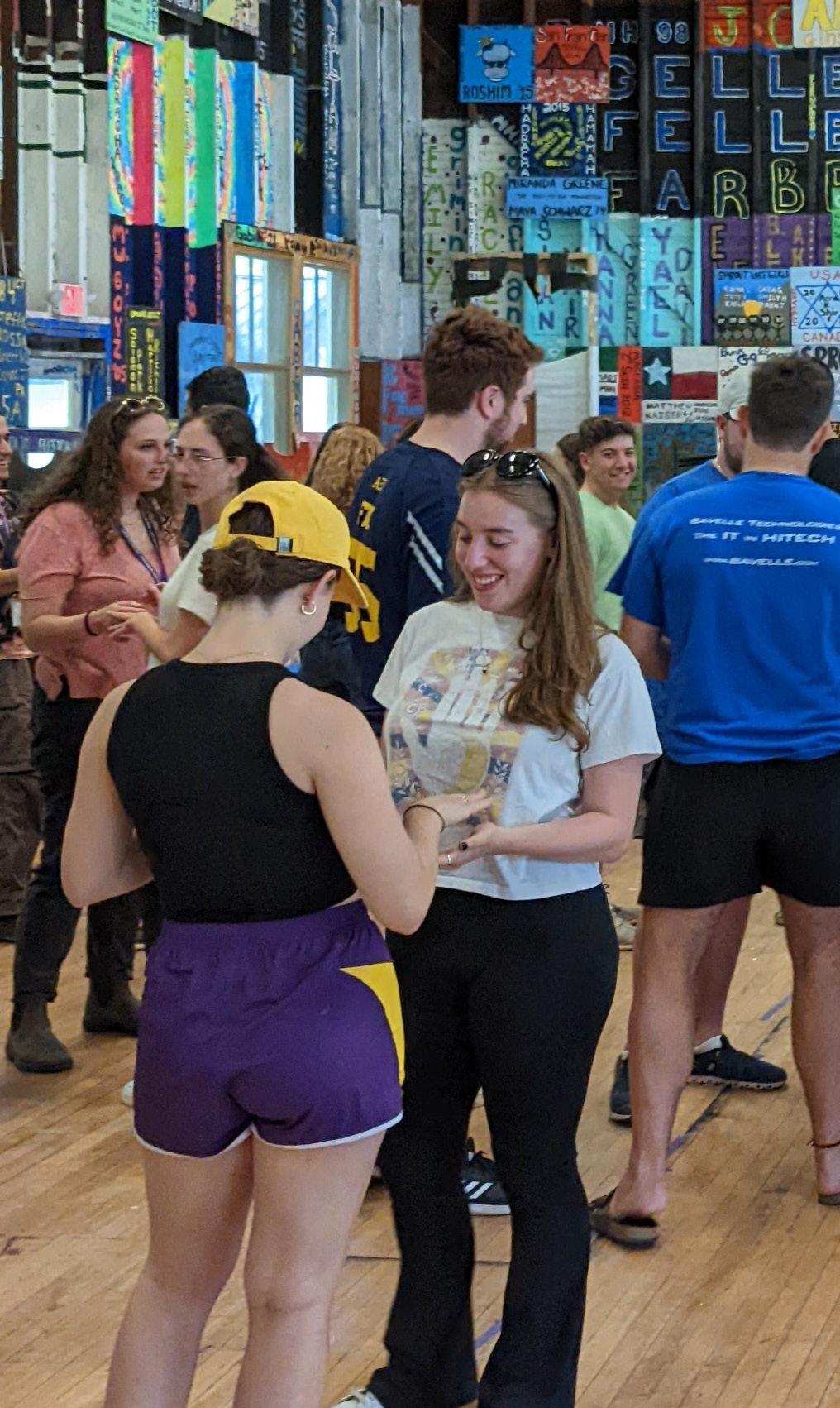
26
GOAL 2 METHODS:
AUDIENCE: PARENTS, GRANDPARENTS AND OTHER FAMILY MEMBERS OF PRETEENS AND TEENS
KEY METRICS OF SUCCESS
Support Jewish parents in parenting their preteens and teens through Raising Up Teens webinar series featuring a wide range of
Develop complementary parent and grandparent sessions and workshops for Moving Traditions programs to enable parents to learn key skills and approaches for supporting their teens.
Create and distribute new content directly to parents to be used at home with their Jewish preteens and teens to support families in the transition to adolescence through engaging and accessible Jewish and SEL based wisdom .
Double the number of parents, grandparents and other adults who mentor teens to 10,000 who engage with Moving Traditions learning opportunities.
Ensure that at least 80% of family members who attend a Moving Traditions program feel that participating in a Jewish learning community has supported them in their roles.
By 2026, release new book and/or electronic resource for parents to use in a self-directed way with their B-Mitzvah age children.
AUDIENCE: YOUTH EDUCATORS, CLERGY AND COMMUNAL LEADERS IN JEWISH YOUTH-SERVING ORGANIZATIONS
OBJECTIVES
Expand professional development and experiential educational training opportunities through our CultureShift initiative for educators, institutional leaders, and other professionals who either deliver Moving Traditions programs or play a key role in influencing the lives of Jewish youth.
Create a scalable training to serve other youth-serving organizations that addresses key areas of healthy culture that are under-addressed in the field: teen wellbeing from a Jewish perspective; support for teen development of healthy, equitable and just relationships and communal norms; support for integrating an expansive and inclusive understanding of gender into Jewish educational and communal institutions and culture.
AUDIENCE: WIDER JEWISH COMMUNITY
OBJECTIVES
We will strengthen our communications and storytelling capacity, output, and impact.
We will use our organization voice and brand to advance a field-wide understanding of the connections between individual wellness, healthy relationships and communities, and systemic justice and equity.

We will develop new language, tools, and training to help stakeholders clearly articulate the impact and relevance of our work.
KEY METRICS OF SUCCESS
By 2025, we will be engaging 200 educators a year who run Moving Traditions programs through training and continuing education. We will also have doubled the number of educators and professionals engaged through CultureShift by 2025 to impact at least 1,000 youth serving professionals and volunteers per year.
By 2025, develop 2-4 new multi-year partnerships with national youth-serving organizations to maximize our impact on Jewish youth and those who serve them across geographical, institutional and denominational lines.
KEY METRICS OF SUCCESS
By January 2023, launch a redesigned website that is easier to navigate, with a goal of doubling our annual visitors to 100,000 by the 2025 programmatic year.
Through targeted communications and engagement strategies for each segmented audience, maintain email open rates that exceed industry standard, increase click rates to industry standard by the 2025 programmatic year.
By the 2025 programmatic year, train 100% of board members, staff, and teen fellows to clearly articulate the impact and relevance of our work.
By the 2025 programmatic year, establish thought leadership by publishing 10 thought pieces per year by staff, Board members, alumni, and teen fellows; and speaking at 25% more conferences and events within the Jewish community.
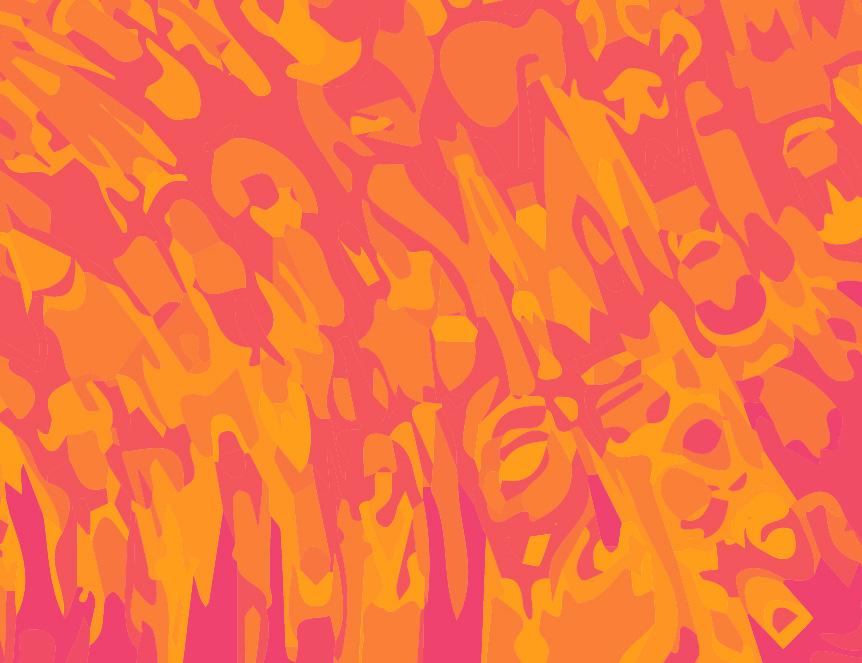
27
GOAL 3: SECURE THE NECESSARY RESOURCES
ENSURE OUR ABILITY TO ACHIEVE OUR STRATEGIC PLAN GOALS BY INVESTING IN ORGANIZATIONAL DEVELOPMENT, OUR BOARD, AND INFRASTRUCTURE.
Our organization is at a critical moment of change and possibility as we have an opportunity to scale our programs and approach to more Jewish youth and those that support them. To grow and thrive into the future, we need to increase our financial stability, and align our staffing model and organizational infrastructure to our mission and strategic priorities.
GOAL 3 METHODS:
1. ENSURE OUR FINANCIAL SUSTAINABILITY.
Enhance our development strategy, systems, and structures to support 30% income growth by the end of FY2025. We will create and implement annual development plans to maximize and prioritize relationships and fundraising for all donor types, with a focus on building and maintaining one-on-one relationships with an increasing number of major gift donors. We will also seek to increase our Foundation management capacity, as we identify and secure grants from a growing number of foundations and Jewish Federations.
Develop business models to enable greater geographic reach, potentially including regional and community-based funding. This includes both philanthropy and fee-based models that allow us to continue to subsidize the participation of individual partner institutions, as well as forging national and regional partnerships.


“This group means that queer Jewish teens get to exist in a space that is held by older queer Jews who can guide them to the complexities of being a teenager with their specific intersections as well as giving them the space to be their goofy, philosophical, curious, queer Jewish selves.” — Tzelem Group Leader
2. MAKE MOVING TRADITIONS A TRULY GREAT PLACE TO WORK FOR ALL PEOPLE, INCLUDING INVESTMENT IN DIVERSITY, EQUITY, INCLUSION, AND JUSTICE (DEIJ) WORK FOR THE BOARD AND STAFF.
Ensure that Moving Traditions is a desirable organization for a diverse range of individuals and partners to work for and collaborate with. We will foster an inclusive, supportive, and responsive organizational culture with opportunities for continuous learning related to our mission and values, as measured by responses to the Leading Edge Employee Experience Survey. We will also specifically assess our organizational culture related to diversity and belonging through anonymous surveys administered annually.
Assess our existing organizational policies and practices to determine where we have gaps and potential for bias. This includes assessing our practices for hiring, retention, and promotion. We will continue to build the awareness, engagement and accountability of our staff to DEIJ through staff learning sessions and by building accountability to DEIJ efforts into goal setting and performance review processes.
FINANCIAL PRIORITIES.
Implement an organizational structure that allows for local implementation and growth, while also centralizing key functions related to development, programs, and education, as laid out in the three-year hiring and implementation plan.



4. INVEST IN BOARD DEVELOPMENT AND DIVERSIFY BOARD MEMBERSHIP.
Recruit new Board members to achieve a board size of 16-18 by the 2025 programmatic year. In addition to recruiting board members from across North America who represent the full spectrum of gender and Jewish life, we will focus on recruiting individuals with philanthropic capacity who fill existing gaps in representation, communal connections, and expertise. We will leverage relationships with partners on the ground in key regions to identify and steward prospects.
Provide ongoing training to the Board in fundraising and other key areas related to our work (e.g., theory of change, DEIJ, etc.) while ensuring our governance policies always align with best practices.
29

FY22 PROJECTED DRAFT FY23 PROJECTED DRAFT FY24 PROJECTED DRAFT FY25 PROJECTED INCOME Board Support 150,000 200,000 225,000 275,000 Individual Support 1,250,000 1,615,000 1,600,000 1,700,000 Foundation Operating Support 1,300,000 2,050,000 2,050,000 2,050,000 Corporate Support 10,000 10,000 10,000 10,000 Government Support PPP Loan Forgiveness 433,891 0 0 0 Program Fees 150,779 220,700 272,409 345,020 Other Revenues 42,434 42,800 44,085 45,410 TOTAL INCOME 3,337,105 4,138,500 4,201,494 4,425,430 EXPENSES Salaries & Benefits 2,835,303 3,363,602 3,467,146 3,627,081 Community Group Leaders & Temp Help 59,888 33,000 33,990 35,010 Office Expenses 72,179 94,763 102,605 105,685 Meetings & Conferences 45,426 143,161 107,455 150,680 Professional Fees 288,258 293,345 271,645 265,545 Rent & Utilities 132,520 6,420 6,745 7,080 Other Expenses 118,239 158,323 168,700 174,685 TOTAL EXPENSES 3,551,813 4,092,614 4,158,285 4,365,766 SURPLUS / (DEFICIT) (214,708) 45,886 43,209 59,663 WITH A 25% INCREASE IN BUDGET, WE CAN DOUBLE OUR IMPACT ON YOUTH.
Director
Chief
Chief of

of
of
of
&
to CEO
of
of
of
Education
Director
Director,
of
Director,
Director, Northeast
Director, South
POSITION FY21 FY22 FY23 FY24 FY25 CEO Chief Executive Officer DEVELOPMENT & COMMUNICATIONS
Advancement VP
External Relations Major Gifts Officer Director of Marketing & Communications Individual Giving Manager Communications Coordinator Foundations Relations Manager FINANCE & OPERATIONS
of Finance & Operations Counsel & Director
Operations
of Organizational Development
Culture Controller Assistant
Finance & Operations Specialist PROGRAMS Chief
Program VP
Education VP
Program Director
Teen
Fellowship
Fellowship
DEIJ Project Director Program Manager Curriculum Design Manager Database Administrator Program Assistant PARTNERSHIPS VP
Partnerships Regional Director, California Regional Director, Mid-Atlantic Regional
Midwest Regional
Regional
Regional Area Manager Regional Area Manager TOTAL STAFF 24 27 31 32 33
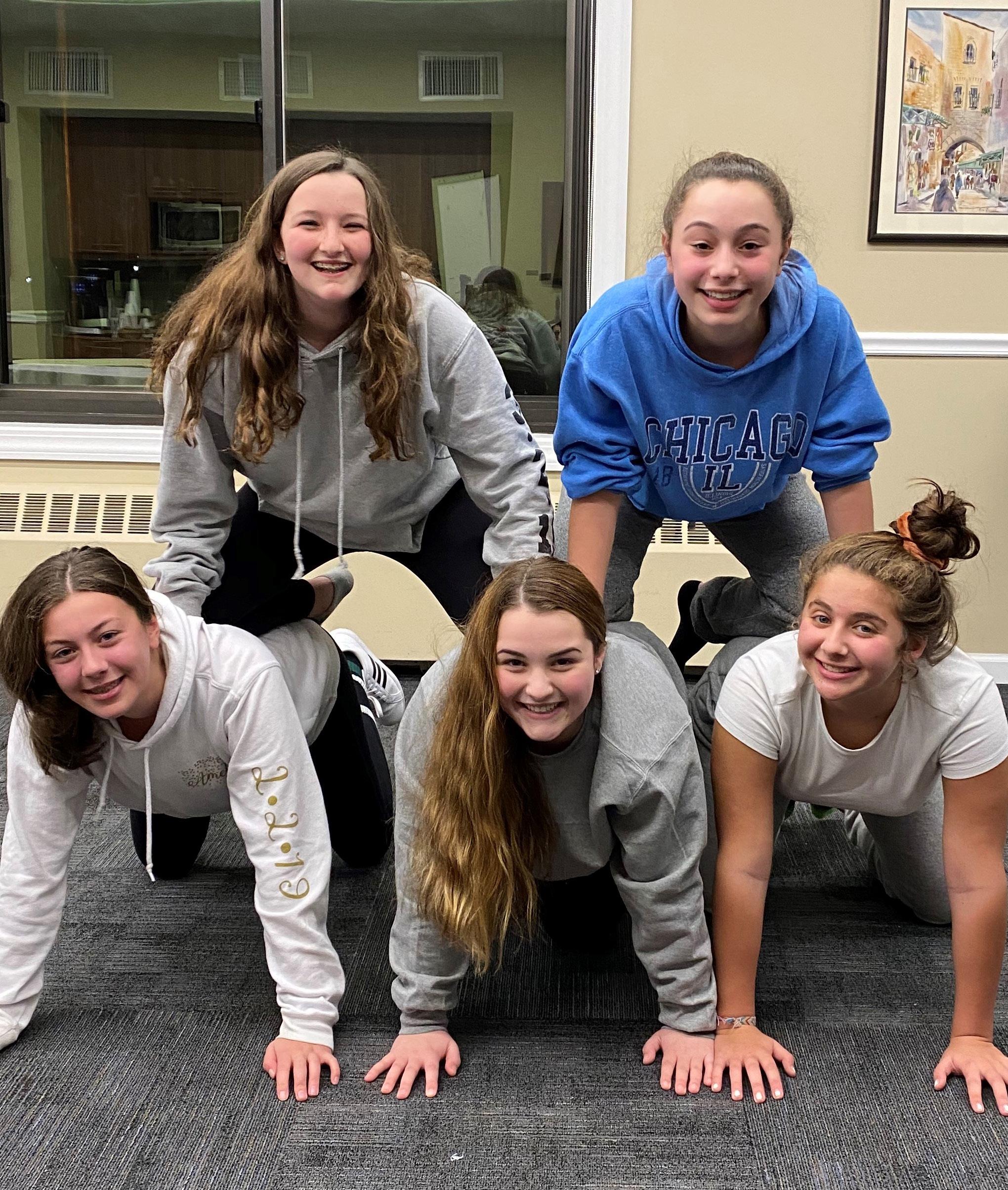


Moving Traditions originally intended to conduct our strategic planning process in 2020 – but a global pandemic put the project on hold for a year. Amidst the ongoing uncertainty in early 2021, and a leadership transition in 2022, we bravely set out to imagine the future of Jewish adolescent programming through a gender lens. We have so many people to thank.
This Strategic Plan was made possible by the generous support of the Jim Joseph Foundation and the Crown Family Philanthropies. Moving Traditions’ success – today and into the future – is built on your national philanthropic leadership and shared commitment to increasing the number of Jewish youth who participate in high-quality, powerful Jewish educational programs.


We sincerely appreciate the dozens of philanthropists, educators and program participants who provided their time, energy and wisdom (often more than once), as we explored the current landscape of Jewish and adolescent life in the United States; and looked for best practices in our tradition and the secular world to address the needs of the Jewish community.
We thank our tireless Strategic Planning Committee and our engaged Board of Moving Traditions, whose members continuously demonstrated their passion for our organization through the challenges of a global pandemic as well as our first CEO transition. You never wavered in your curiosity, creativity and support, as we developed our new vision, mission and goals for this critical moment in Jewish history. We want to thank our strategic planning firm, Third Plateau. Finally, these acknowledgements would not be complete without recognizing the vision of our founding CEO, Deborah Meyer, and founding Board Chair, Sally Gottesman. This plan for growth is scaffolded on the strong foundation they built over decades of work. Our ambitions aim high only because they stand on the shoulders of giants.
The Ethics of our Ancestors tells us to find a teacher. Through the pedagogy and personal example of everyone who helped this planning come together, we learned how to respond to a global crisis with rapid needs assessments and mitigation plans, and then created this inspiring 2022-25 strategic plan that we are excited to implement.
33

MovingTraditions.org 215.887.4511



























































































